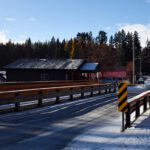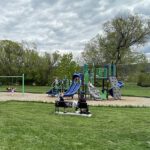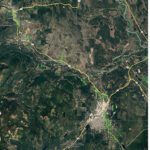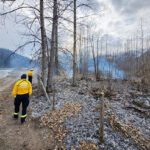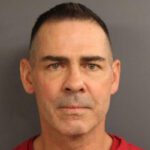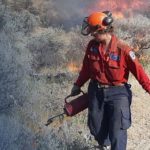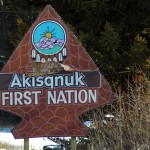Home »

Call for RDEK board to reject RV park
Letter to the Editor
Re: Wasa Bylaws No. 2755 & 2756
As a Wasa resident, I want to express my opposition to the proposed Bylaws No. 2755 and 2756 that would clear the way for developing a 120-unit RV Park here. I urge Regional District of East Kootenay (RDEK) board members to vote against these proposed changes to the Wasa official community plan (OCP).
It is the RDEK board’s responsibility to balance commercial development proposals with the environmental priorities of the Wasa OCP. To date, the board has not demonstrated a concern with this balance. Are they representing all citizens of the RDEK or only those with commercial development interests?
In the Regional District of East Kootenay – Wasa and Area Official Community Plan Bylaw No. 2501, 2014, under Section 10.2 Water Resources, in 1) Background, it states, “Consideration of options that can mitigate the human impact on water resources will be essential when considering development and land use opportunities in the future.”
The RDEK has not taken any “essential consideration” of the impact an RV Park development will have on Wasa Lake.
The Wasa OCP also states in Section 3 – Policies, “(e) Development in the plan area should consider the impact of associated water usage requirements on groundwater resources.”
By allowing a 120-unit RV park plus 24 cottages, the RDEK board would violate the above policy by not understanding the RV Parks impact on groundwater resources.
Mr. Kiy’s RV Park does not “mitigate the human impact on water resources,” but in fact does the opposite. It will make things worse by placing local groundwater resources at risk of over-consumption and possible contamination.
I believe the RV Park will significantly increase the consumption of groundwater resources at Wasa.
According to the BC Municipal Water Survey 2016, the average residence uses “312 litres per capita per day.” (source, page vii.)
If the RV park has three persons per RV unit and four in he cottages, it would mean a daily usage of 142,272 litres being drawn from groundwater resources; that’s everyday.
Even if Mr. Kiy’s contention the park will only have intense usage for two months (60 days), which is based on no facts or usage statistics, means the RV Park would consume 8,536,320 litres of groundwater from the Wasa aquifer. In two months!
Mr. Kiy has failed to provide any scientific or statistical evidence that Wasa groundwater resources can handle this type of intense consumption, high-level withdrawal and septic dispersal.
If RV Park usage is longer, which is highly likely given the existing spring-summer-fall usage pattern at Wasa, and more people populate the park, then consumption from groundwater resources will be close to 17 million litres per tourist season. This latter figure is based on four persons per RV site, five per cottage and a 90-day tourist season.
Can the RDEK board prove that this level of water consumption would not drastically harm the Wasa aquifer and put existing groundwater resources in danger? If it can’t, then it must, in all good conscience, defeat the proposed OCP bylaw amendments.
Has the RDEK conducted groundwater studies at Wasa? Has the RDEK conducted environmental impact studies on the effect a 120-unit RV Park plus 24 cottages will have on the quantity and quality of water in Wasa Lake and the surrounding aquifer?
If not, then what scientific evidence is the RDEK board using to approve amendments to the Wasa OCP? If there is no scientific evidence, then the RDEK board must reject the RV Park proposal.
If there is no scientific evidence or data to support the RDEK board in making changes to the Wasa OCP, changes that violate OCP policies, and the RDEK Board wants to approve these bylaw changes, then the RDEK and Mr. Kiy must conduct appropriate environmental and groundwater resource impact studies to determine if the Wasa aquifer can sustain continued long-term withdrawal of over 17 million litres of groundwater per tourist season (90 days).
The RDEK Staff Report presented to the board is entirely biased toward commercial development. There is absolutely no mention of the Wasa OCP’s environmental and groundwater policies.
The RDEK Staff Report claims, in Recommendation: Option #1, “The additional information provided by the applicant addresses the main concerns brought forward at the original public hearing.” This is patently false. Mr. Kiy has supplied very little data or evidence to address Wasa residents concerns.
Mr. Kiy’s letter dated November 1, 2016 does not deal with Wasa residents concerns about RV density, increased population (close to 600 people) along with vehicles, boats and ATVs and their impact on the quality of water in the lake and groundwater resources.
I attended the first public hearing, which Mr. Kiy did not, and heard from concerned Wasa residents who overwhelmingly rejected his proposal for the RV Park.
Details of this meeting can be found HERE.
Shortly after the first public hearing, in a September 2016 telephone interview, Mr. Kiy stated the number of RV sites would be 100. His current proposal is a 44% increase too 120 RV sites plus 24 cottages.
The Wasa Lake Land Improvement District (WLLID) jurisdiction encompasses 380 properties containing residential dwellings and a few small businesses. Mr. Kiy’s proposal would increase the number of residential dwellings within the WLLID jurisdiction by 38%.
For a small rural community, a 38% increase in the number of residents will have a significant impact on groundwater resources and the environment of the lake. This population increase will draw over 17 million litres of groundwater in a 90-day tourist season. If these residences are used more than a tourist season, the consumption from groundwater resources could be two or three times higher.
Mr. Kiy has owned the land for the past 15 years over which no development took place. Now he expects Wasa residents and the RDEK to blindly approve his re-zoning request without his conducting environmental impact studies on groundwater resources and the quantity and quality of water in Wasa lake.
Mr. Kiy has not demonstrated the proposed septic system would be able to handle over 142 thousand litres of grey and black water per day. He has not submitted sewage system plans for community review.
In addition, the RDEK and Mr. Kiy must take into consideration the BC Water Sustainability Act as it pertains to regulations requiring authorizations for the domestic use of groundwater and any other requirements of the Act.
Again, I urge the RDEK board to defeat the proposed OCP bylaw changes and reject the 120 unit RV Park and 24 cottages proposed for Wasa.
Nowell Berg,
Wasa

